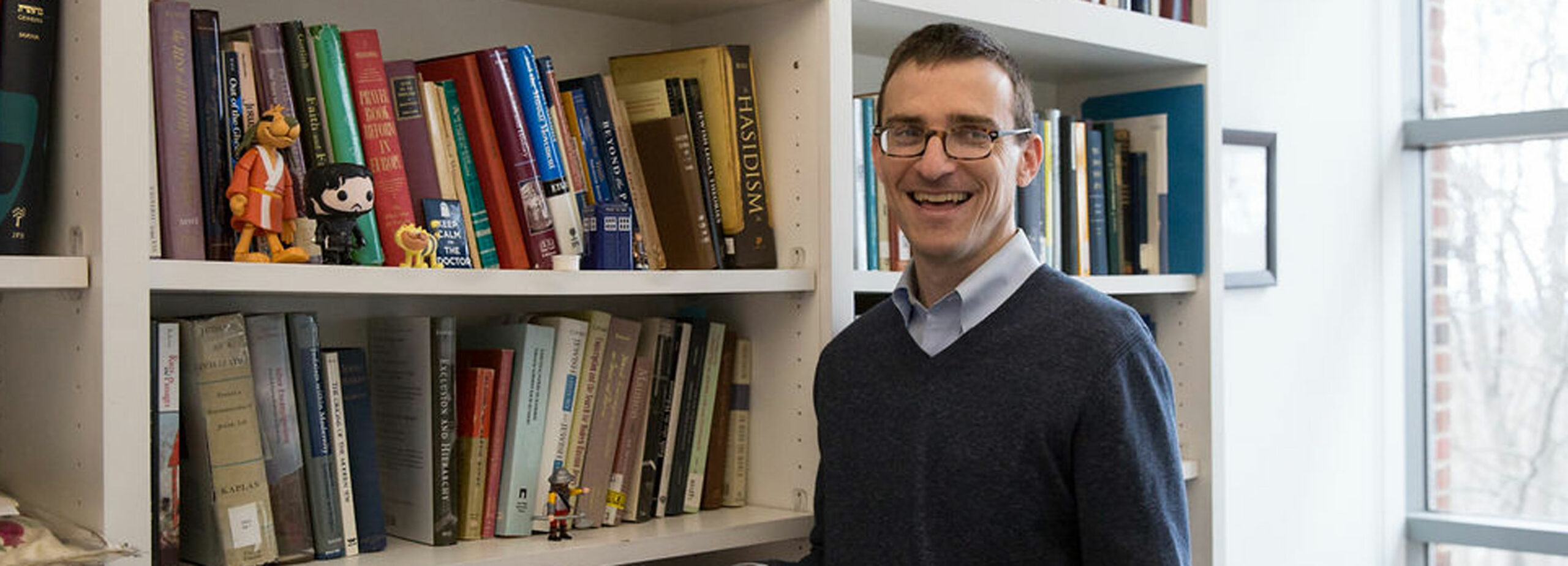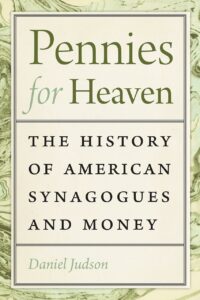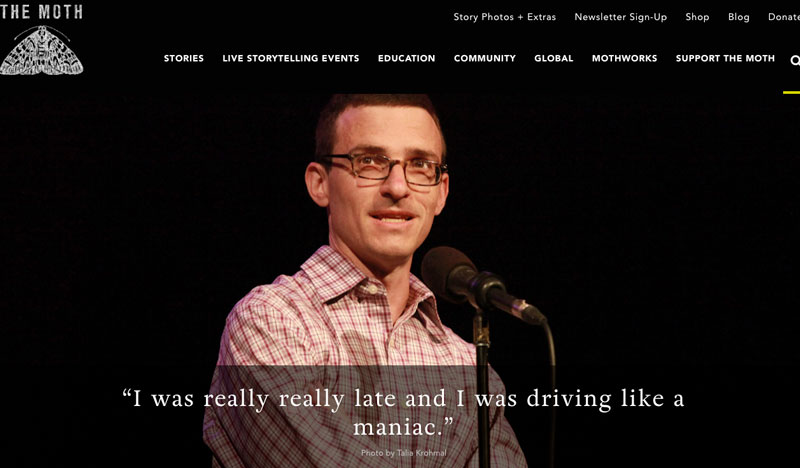Faculty Faculty Spotlight:
Rabbi Dan Judson

Q. What do you like best about teaching at Hebrew College’s Rabbinical School?
It is tremendously rewarding to teach at the Hebrew College Rabbinical School. Our students are thoughtful, creative and inquisitive. In my history classes we explore: memoir, poetry, newspapers, essays, sermons, even financial documents, all to give students a holistic and nuanced sense of the past. Our students are really hungry for this kind of history. There is so much simplistic historical thinking right now across the political spectrum, and I want our students to be thoughtful in the face of pressure to spout simplistic ideas which conform to one side. I truly believe the future of Jewish leadership has got to be one which really understands and appreciates its history.
Q. What is your specialty and what are you working on right now?

I have changed my focus a bit for the book I am presently researching and writing which is on the history of American Zionism in the 1920’s. The book is tentatively called, When America Became Zionist: The Lodge-Fish Resolution of 1922 and the Surprising Group of Politicians who Changed American Policy towards Israel. The Lodge-Fish resolution is the first time the America government went on record in favor of Zionism. The story of the resolution has never really been fully told and it has so much resonance for today. The coalition of folks behind the bill included the American Zionist leadership of the time, but also included Christian Evangelicals who emerged as a political force for the first time. The main sponsor of the bill in the Senate was Henry Cabot Lodge, who spent most of his Senatorial career as one of the leading eugenicists in American life who denounced Jewish immigrants and the danger they posed to American culture. The main opposition to the bill were Reform rabbis who opposed Zionism. All of the elements — Jewish groups coming out both in favor and opposed to Zionism, Christian evangelicals advocating for Zionism, politicians supporting Zionism often for their own idiosyncratic reasons are all at play today of course. This semester I have had the great opportunity to teach two Hebrew College Adult Learning Me’ah classes based on my research.
Q. What are you reading now?
I read a lot of fiction and a lot of history. I just read I.J. Singer’s The Brothers Ashkenazi which was written in the 30’s. Israel Singer was Isaac Bashevis Singer’s brother and was the better known writer before the second World War. The book is epic. It covers the lives of rival brothers against the background of Jewish history and antisemitism and pogrom which marked Jewish life in Russia before and during the first World War. I would recommend it if you are into historical fiction. I am presently reading The Last Jews From Hamburg: Business, Rivalry, and the Race to Save Russians Jews on the Eve of World War I, by Steven Ujifusa. The book is marvelously written and reads as historical thriller despite being primarily about the business of shipping immigrants from Russia to America.
Q. I heard you were on NPR’S Moth Radio. How did that happen and what do you like about storytelling?
I was on the Moth Radio hour because I went to a MOTH event where you can sign up to tell a story, and my story was voted the best story of the evening and then I got an email saying that the story was going to be on their national radio show, which was a pleasant surprise. The story is about getting stopped by the police for speeding on my way to leading Torah study at my synagogue and things got a little strange (watch story here). I come from a family where I am the youngest of 5 and everyone including my mother is/was a fantastic storyteller. Humor and dry sarcasm were prized. So in the stories I tell I am always trying to be humorous. And I am trying to capture one small truth about the world, and stories have the capacity to mix humor, pathos, and truth in a way that almost nothing else does.
Rabbi Dan Judson, Ph.D. is the Provost of Hebrew College. He received his doctorate in Jewish history from Brandeis University and his book, Pennies for Heaven: A History of American Synagogues and Money was a finalist for the National Jewish Book Award. He is presently researching and writing a book on American Zionism in the 1920’s.
Explore Graduate Programs Tamid Adult Learning Classes Support Our Work


